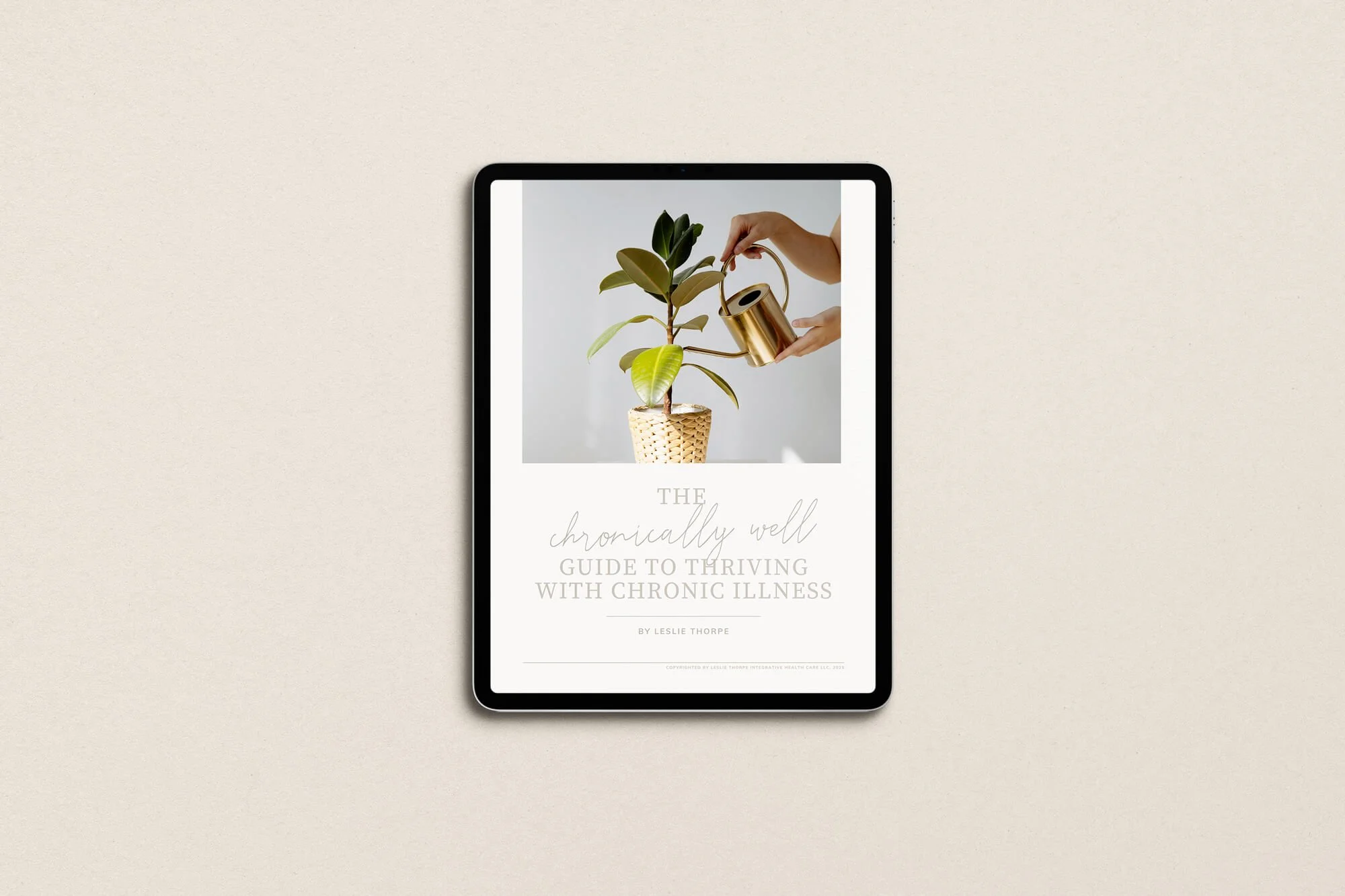Finding Your Balance With Chronic Illness And Stress
It can be hard to find a balance between managing stress and living with an inherently stressful chronic condition.
First of all, it is likely that you are worried about your health. But, unfortunately, it usually doesn’t stop there. Because of the way that chronic illness can impact so many aspects of our lives, a typical byproduct of chronic illness is stress. And, yet, stress can be a factor that can make many chronic illnesses worse. So, how do you navigate this tension when you can’t really avoid stress?
I believe it is possible to find your own way to balance the tension between reducing stress while living with a chronic illness that is inherently stressful.
While it might look a bit different for each of us, I am sharing 3 fundamentals for finding your balance between managing stress while living with an inherently stressful chronic condition.
3 Fundamentals to Find Your Balance With Chronic Illness And Stress
ONE - Identify the sources of stress that you can actually do something about
To get a clear understanding of what's causing the most stress in your life, health, and healthcare, take a moment to assess your situation. While living with a chronic illness may seem like an obvious answer, it's not something that can be quickly or fully resolved in most cases.
Instead, shift your focus to the aspects of your life that you have control over and that may be contributing to your stress. This could include seeking accommodations at work, finding more support at home, or exploring better healthcare options. The possibilities are endless, and what causes you stress will vary depending on your unique circumstances.
Many different factors can hinder our ability to find balance with chronic illness and stress. Oftentimes, my clients face obstacles that prevent them from moving forward on their wellness journey. Before we can even start setting wellness goals or implementing practices, we first need to address a major stressor in their lives. This could be something that no longer works given their current symptoms or challenges. Once this stressor is addressed, they'll have more room in their lives and will feel more prepared to make positive changes in other areas of their lifestyle, ultimately leading to improved wellness.
For more information on how to find clarity about the stressors in your life, check out this blog post that digs into this a little further. Also, you can accept my free 7-day Chronic Wellness Challenge here. It contains a self-assessment that could be really helpful. Finally, I shared some relevant tips in this blog post.
two - Reduce stress with techniques that work for you, even if you can't eliminate the stressors
Meditation is a proven way to bring peace to your mind and body. It's been shown to relieve symptoms and create a sense of calm and balance. This can be a game-changer when dealing with chronic illness. By redirecting your attention to something peaceful, it helps you cope with stress and stay present and centered.
But if meditation feels overwhelming, don't worry! There are other ways to be in the moment. Listening to music, spending time in nature, connecting with your pet, or embracing your artistic side can all do the trick.
My health coaching clients often don’t recognize that these activities are actually mindfulness practices. So even if it's not traditional meditation, remember that anything that slows your heart rate and focuses your mind on the present counts as a valuable stress reducer.
three - embrace joy!
By doing things that bring you joy and spending time with people who make you happy, you can create a much-needed balance in your life, especially when living with a chronic illness. And here's the good news: adding joy to your life actually has health benefits!
Finding joy can provide a meaningful escape from the challenges and discomforts of chronic illness. It reconnects you with your true self, beyond just being a collection of symptoms or a medical diagnosis. It reminds you of the unique qualities that make you who you are - your sense of humor, interests, and purpose.
When we experience positive emotions, our body releases hormones like serotonin and endorphins, which can help counteract the stress response. In addition, positive emotions can reduce the levels of stress hormones in our body. So, what better way to promote health than by simply having some fun!
For more reading about the importance of positive emotions, check out my blog post, Why Joy Will Help You Live Chronically Well.
Find Your Balance
Explore the Chronically Well Guide To Thriving. It dives deeper into all the concepts in this post AND helps you apply them in your own life.
Achieving a balance between managing stress while living with an inherently stressful chronic condition can be difficult, and sometimes more complex than it seems.
But remember that there is no one-size-fits-all when it comes to finding your balance. It will look different for everyone, depending on the sources of stress and our individual coping strategies.
Start by identifying which stressors are within your control and developing ways to reduce the effects of unavoidable ones. Do not let the stresses of chronic illness rob you of personal joy. Remind yourself that you deserve happiness and make an effort to embody joy in your daily life!
Ultimately, I believe that with consistent care to manage stress, we can continue pursuing a very fulfilling life with a chronic illness. After all, health is much more than physical - it is also mental, emotional, spiritual, environmental, etc. Taking steps to care for all parts of you will help you to find your unique balance and live Chronically Well.
While there is no one answer to how to reduce stress in your life, gaining clarity on what is causing your stress is the first place to start. Frequently, there are areas of life beyond physical health that can be adjusted to better serve you.
What is one small thing you can do to lower your stress today?
I wish you well on whatever it is you can do for yourself today!
Does this resonate?Please share this post with friends! Click the menu on the right to share on social media.





